News
Popular searches: Influenza, Childhood cancer, Endometriosis, Inflammation
-
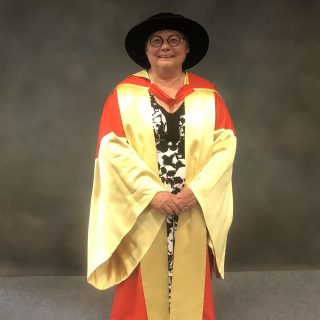
Professor Rosemary Horne awarded Doctor of Science
Professor Rosemary Horne has been awarded a Doctor of Science from Monash University for more than three decades of research that has shaped the understanding of sleep in children and infants. The Doctor of Science (DSc) is of a higher standing than a PhD and is awarded for work that makes an original, substantial and… Read more
-

Therapy brings long-term hope for halting Parkinson’s Disease
How deep brain stimulation therapy could help to slow or halt the progression of Parkinson’s Disease is the focus of new research by Dr Joohyung Lee, thanks to a grant from the Bethlehem Griffiths Research Foundation. “Parkinson’s disease (PD) is primarily associated with the inability to initiate and control voluntary movement. These symptoms result from… Read more
-

Simple blood test could decrease risk of stroke, heart attack
Australia’s largest study of a common yet underdiagnosed cause of high blood pressure is starting at Hudson Institute, with the aim of preventing heart attack and stroke. Primary aldosteronism (PA) is a potentially curable cause of high blood pressure (hypertension) caused by the over-production of the hormone aldosterone from the adrenal glands. If left undiagnosed,… Read more
-
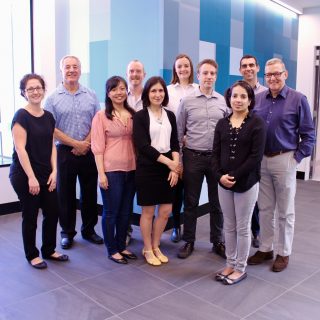
Hudson Institute joins international paediatric cancer consortium
Hudson Institute scientists will share expertise with leading international research institutions to progress research and improve treatments for children and adolescents with brain cancer. Hudson Institute has been announced as the first Australian member of the US-based Children’s Brain Tumor Tissue Consortium (CBTTC) and joins a collaborative, multi-institutional research program dedicated to the study and… Read more
-
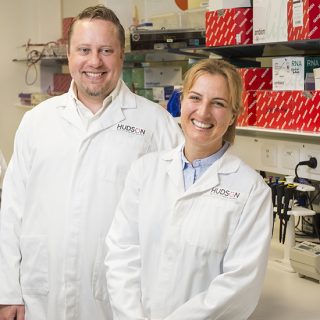
Stunning NHMRC Grant success
Hudson Institute has had outstanding success in the recent NHMRC Project Grant round. In addition, our researchers have been awarded an NHMRC Partnership Grant, an NHMRC Development Grant, an ARC Discovery Grant and three NMHRC Fellowships.… Read more
-

Linking a common stomach bug to gastric cancer
Why does a common bug, Helicobacter pylori, which is present in the stomachs of around half the world’s population, drive stomach cancer in some people? Associate Professor Richard Ferrero will establish how this seemingly innocuous bacterium drives growth of a specific type of stomach tumour, thanks to generous funding from the US Department of Defense.… Read more
-

Disease of moving parts: examining the puzzle of cancer
For more than 50 years, the idea that cancer is caused by abnormal genes has been driving cancer research and treatment. Now, discovery research into epigenetics (how genes are switched on and off), inflammation and tissue organisation (the interaction between cells and organs) is leading scientists to acknowledge that just like the human body, cancer… Read more
-
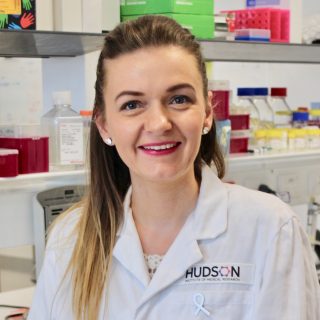
2018 Fielding Foundation Fellowship and Innovation Award announced
Hudson Institute’s brightest scientific minds and most promising discoveries will be progressed, thanks to support from a leading philanthropist, Mr Peter Fielding and the Fielding Foundation. The 2018 Fielding Innovation Award has been awarded to Dr Maree Bilandzic to develop more effective treatments for women with ovarian cancer. The 2018 Fielding Foundation Fellowship has been… Read more
-
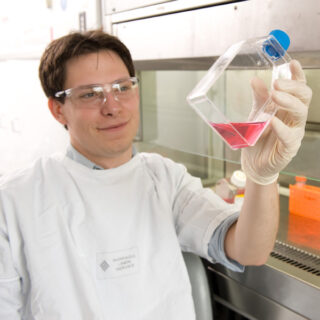
Could gut bacteria be harnessed to fight cancer?
The gut microbiome, the vast ecosystem of bacteria that live within our digestive system, is becoming increasingly recognised for its essential role in supporting our physical and mental health.… Read more
-

Being born late preterm linked to increased heart disease risk in adulthood
Babies born at 35 weeks could be at higher risk of cardiovascular disease in adult life than those born at full term, according to new research by Hudson Institute of Medical Research scientists.… Read more
